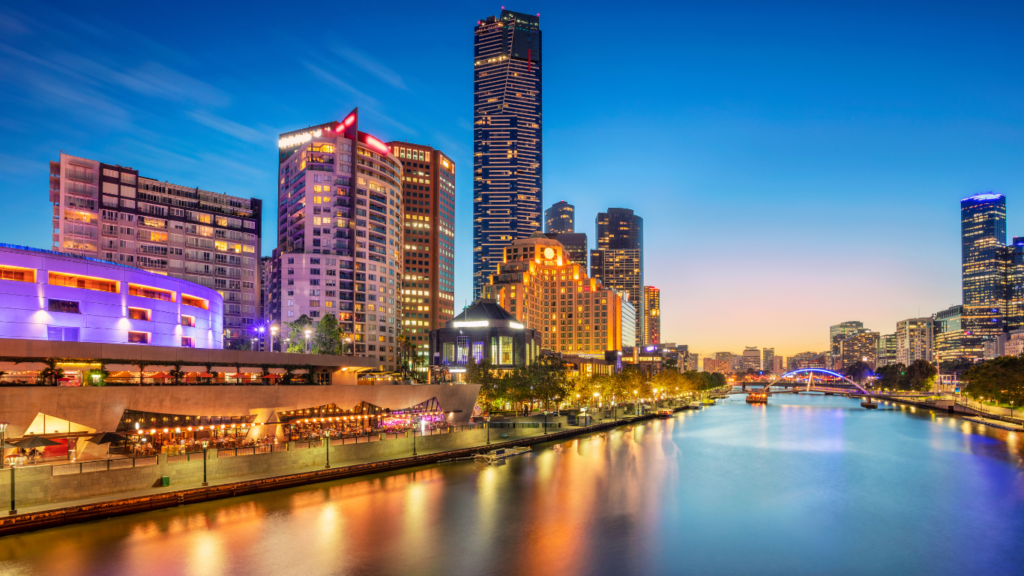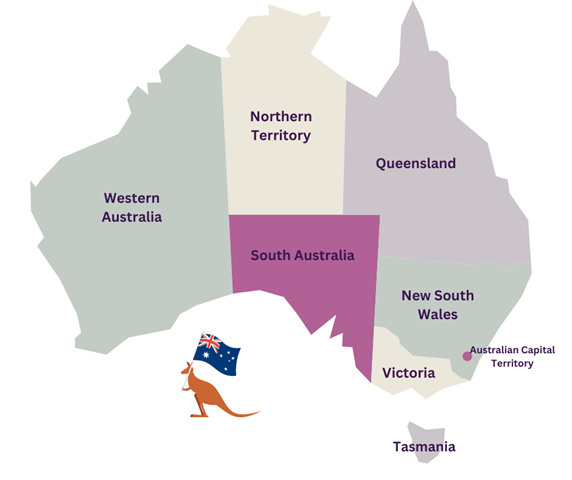Surrogacy in Australia is legal but tightly regulated, with state and territorial laws varying significantly. The laws have been designed to protect the rights and interests of all parties involved, including the surrogate, intended parents, and child.
But before we delve into the legal framework of surrogacy in each state and territory, there are a few rules that apply throughout Australia:
- In Australia, only altruistic surrogacy is permitted, where the surrogate does not receive any compensation except for reimbursement of reasonable expenses.[1] Any payment or gifts to a surrogate beyond reasonable costs is illegal.
- The child’s best interest is paramount in surrogacy cases. This means that the child’s well-being and needs precede any biological claims made by intended parents seeking legal recognition.
- Legally, the surrogate is the child’s legal mother at birth, and her name will appear on the original birth certificate. However, legal processes are available for intended parents to establish legal parenthood after birth. Such an application can only proceed with the consent of the surrogate.
- Intended parents must be citizens of Australia at the minimum, and some states/territories may also require residency in that state/territory.
- Intended parents must be over the age of 18 years.
- Surrogate must be at least 25 years old.
- A surrogate must have given birth to at least one child (except for QLD, NSW, and SA).
- Surrogates must also undergo medical and psychological assessments to ensure they are physically and emotionally capable of carrying a pregnancy to term and giving up the child.
- There must be a medical or social reason for needing the assistance of a surrogate.
- Intended parents must undergo a criminal history check and a child protection order check to ensure they are suitable for raising a child.

New South Wales
New South Wales is the most populous state in Australia. In NSW, surrogacy is regulated by the Surrogacy Act 2010.
- Heterosexual couples, same-sex couples, and single people can participate in surrogacy.
- There is mandatory psychological counseling for the parties, and the surrogate and intended parents must receive independent legal advice.
- The surrogate and intended parents must be over the age of 25 years, and all parties must sign a surrogacy agreement.
- Parties must sign a surrogacy agreement. The NSW Supreme Court must approve the agreement before a surrogacy arrangement can proceed.
- Before the embryo transfer, the surrogate must demonstrate that she had an existing relationship with the intended parents for a minimum of 6 months, allowing for a cooling-off period during which all parties can reflect on their level of commitment.
- After the birth, the Intended parents must obtain a Parentage Order from the Supreme Court to become the legal parents of the child born through surrogacy.
Victoria
In Victoria, surrogacy is regulated by the Assisted Reproductive Treatment Act 2008.
- Advertising for a surrogate in any form is prohibited.
- The intended parent(s) can be heterosexual, same-sex, or single people.
- Gestational and Traditional surrogacy arrangements are permitted. Traditional surrogacy falls mainly outside of the legislative frameworks. Clinics are prohibited from assisting with traditional surrogacy arrangements, but parties can still apply for parentage orders provided they comply with the legislative requirements.
- Surrogate must be over the age of 25 years.
- The surrogate must have previously given birth to a live child.
- Surrogates must receive mental health counseling and independent legal advice.
- The surrogate must provide the intended parent with a criminal record and child protection background check.
- A signed surrogacy agreement is not mandatory but is recommended.
- The Patient Review Panel must approve the signed surrogate arrangement before the surrogacy arrangement can proceed.
- Intended parents must apply to the Victorian Country Court or the Supreme Court for a substitute Parentage Order to be recognized as the child’s legal parents. At the time of the application, the child must be no less than 28 days old and no more than six months old.
- A parental order will only be issued if this is
- in the best interest of the child and
- The Patient Review Panel approved the arrangement and
- The child is living with the intended parents at the time of the application.
Queensland
In Queensland, surrogacy is governed by the Surrogacy Act 2010.
- Same-sex and single people are permitted to pursue surrogacy.
- The surrogate and intended parents must be over the age of 25 years.
- The intended Parent must be unable to become pregnant, carry a pregnancy, or give birth.
- Intended parents must be residents of Queensland.
- Neither intended parents nor surrogates can advertise any surrogacy arrangement.
- A signed surrogate agreement is required that contains a provision that a parental order will be sought by the intended parents and is approved by the surrogate.
- Independent legal counsel must represent all parties.
- While a previous birth by the surrogate is not mandatory, the approval of a mental health professional is required for such a scenario.
- A surrogacy guidance report, prepared by an independent and qualified counselor, must be given to the court. This report cannot be done by the same counselor who gave counseling to any of the parties before they entered the arrangement.
- The parentage order must be for the well-being and best interests of the child.
- Intended parents must apply for a parental order to the Children’s Court of Queensland. The child needs to be between the ages of 28 days and six months and has lived with the intended parents for at least 28 days before the paperwork can be submitted.
- Intended parents must submit a Register a Parentage or Discharge Order Application Form to the Registry of Birth, Deaths, and Marriages.

Western Australia
In Western Australia, surrogacy is regulated by the Surrogacy Act 2008.
- The surrogate and intended parents must be over the age of 25 years.
- The surrogate must have had a prior birth, but there is a provision for an exception to this rule.
- Same-sex and single men cannot participate in surrogacy in Western Australia, but there is a movement to change this.
- The intended Parent must be unable to become pregnant, carry a pregnancy, or give birth. Age is not considered a valid reason.
- All parties must undertake counseling, be assessed for medical and psychological suitability for surrogacy, and receive independent legal advice.
- A surrogacy agreement must be signed, and all parties must consult with an independent attorney and attend counseling at least three months before signing. (A “cooling-off” period.)
- A surrogacy arrangement must be pre-approved by the Western Australia Reproductive Technology Council.
- Intended parents must obtain a Parentage Order from the Family Court to become the child’s legal parents.
Southern Australia
In South Australia, surrogacy is governed by the Surrogacy Act 2019 and Surrogacy Regulations Act 2020, replacing the previous reference to surrogacy in the Family Relationship Act 1975.
- Surrogate and Intended Parents must be over the age of 25 years.
- The intended parent(s) and the surrogate must be Australian citizens or permanent residents.
- At least one intended parent must be a SA resident when the agreement is entered into.
- Same-sex and single people can be intended parents.
- The surrogate does not have to live in SA.
- While a previous birth by the surrogate is not mandatory, the approval of a mental health professional is required for such a scenario.
- Each party must provide a criminal background check to the other parties,
- Intended parents must pay for the surrogate to participate in counseling services during the pregnancy and at least six months after birth.
- All parties must undergo counseling before entering the surrogacy agreement. The counselor must be a member of ANZICA (Australian and New Zealand Infertility Counsellors Association).
- Independent legal counsel must represent all parties.
- The surrogacy agreement must contain a provision regarding reimbursing reasonable surrogacy costs so that she is not financially disadvantaged because of this surrogacy arrangement.
- The surrogacy agreement must contain a provision that the intended parents will apply for parental rights, and the surrogate agrees to this order being filed.
- A signed surrogacy agreement is required, which must be approved by the Youth Court.
- Intended parents must also apply for a Parentage Order after the child’s birth to be legally recognized as parents.
- When considering applications, the court must consider the child’s best interests.
- An application for parental rights to the Youth Court must not be filed sooner than 30 days after the birth and no later than one year of birth.
- The clerk of the Youth Court must give the Registrar of Births, Deaths, and Marriages written notice of the order.
Tasmania
In Tasmania, surrogacy is regulated by the Surrogacy Act 2012.
- Only gestational surrogacy is allowed.
- Same-sex and single people can be intended parents.
- Intended parents must have a medical or social need for surrogacy.
- Intended parents must be over the age of 21 years.
- Surrogate must be at least 25 years old.
- The surrogate must have already given birth to a live child.
- All parties must be residents of Tasmania.
- A court can waive all conditions for who can be an intended parent or surrogate if it finds doing so is in the child’s best interest.
- All parties must participate in counseling. All parties require two counseling sessions – one before the birth and one after the birth.
- The surrogate agreement must contain a provision that the intended parents will pay all the costs incurred by the surrogate.
- Independent legal counsel must represent each party.
- All parties must sign a surrogacy agreement.
- The child must live with the intended parents during the court hearing.
- Intended parents must apply for a Parentage Order from the Magistrate’s Court: Children’s Division to become the child’s legal parents. This application cannot be submitted 30 days after birth and no later than six months after delivery.
Australian Capital Territory (ACT)
In the Australian Capital Territory (ACT), surrogacy is governed by the Parentage Act 2004.
- Only gestational surrogacy is permitted.
- No advertising is permitted.
- Single parents are not permitted to be intended parents.
- At least one of the intended parents must be biologically related to the child.
- The surrogate must be over the age of 18 years.
- The intended parents are over the age of 25 years.
- There must be a medical reason for surrogacy; age is not valid.
- Parties must be residents of the ACT.
- The surrogate must have delivered a child.
- There must be a signed surrogacy agreement in place.
- The surrogacy agreement must state that the intended parents will apply for a parental order.
- Once the child is born, the intended parents can apply to the Family Court of the ACT for a parentage order, which transfers the legal parentage from the surrogate to them.
- The child must be living with the intended parents since birth.
- The court will consider the child’s best interests when making such an order.
Northern Territory
The Surrogacy Act 2022 governs surrogacy arrangements in the Northern Territory. In July 2023, NT parents welcomed the birth of their first surrogate baby. Within a few months, they successfully obtained a Parentage Order, officially declaring themselves the legal parents.
Citizenship
The process of surrogacy entails a set of stringent requirements aimed at ensuring the well-being and legality of the arrangement and prioritizing the best interests of the child. Firstly, the surrogate and intended parents must be Australian citizens or permanent residents. The parties must also be over the age of 25.
Same-sex and single people
Same-sex couples and single individuals can participate in surrogacy thereby affirming the principle of equal opportunity and recognizing diverse family structures.
Medical Need
Furthermore, the decision to pursue surrogacy must be driven by a genuine medical need on the part of the intended parents.
Signed Contact
Before initiating the surrogacy journey, all parties must enter into a comprehensive surrogate agreement, facilitated by independent legal counsel representing each party’s interests.
Counseling
Additionally, comprehensive counseling sessions are mandated, both pre and post-pregnancy, with the involvement of an impartial counselor unaffiliated with the fertility clinic.
Parental Order
The culmination of the surrogacy journey involves applying for a Parentage Order from the Supreme Court. Before this application, all parties undergo another round of counseling. The counselor must give a summary report to the court and a copy of the report to the surrogate and intended parents.
Once the child is living with at least one of the intended parent/s, they can apply for a parentage order no earlier than 30 days after the birth and no later than 180 days after the birth.
The following documents must be included with the application:
- legally certified copy of the surrogacy arrangement
- copy of the counseling report
- legally certified copy of the birth certificate.
Before applying for a Parental Order, make sure you can demonstrate the following to the court:
- The surrogacy arrangement was non-commercial.
- You have fulfilled the counseling requirements.
- The child is living with the intended parents.
- All parties to the agreement and any birth parents have given consent.
- You meet the residential requirements for the applicants
Once the court is satisfied all the requirements are met and it has determined that it is in the child’s best interests, the Parental Order will be issued. Upon issuance of the parentage order, the intended parent/s become the legal parents, and the child becomes formally recognized as their offspring.
Future Legal Developments
Recent Reforms
In recent years, surrogacy laws in Australia have undergone significant reforms to make the process more accessible and transparent. In 2019, the Australian Capital Territory (ACT) became the first state or territory to legalize altruistic surrogacy for same-sex couples and single people. Previously, surrogacy was only available to opposite-sex couples who could not conceive naturally.
The Parentage (Surrogacy) Amendment Bill 2023 was introduced to the ACT Legislative Assembly on October 31, 2023. The Inquiry Committee released its findings on March 13, 2024. The Government’s response is due by July 13, 2024.
It will permit advertising for altruistic surrogacy arrangements; and permit single people to participate in surrogacy; there is no requirement of a genetic connection to the child but commercial surrogacy will remain illegal.
Other recent reforms include the introduction of standardized surrogacy agreements that outline the rights and responsibilities of all parties involved and the establishment of national surrogacy registers to help facilitate matches between intended parents and surrogates. There is a growing call for uniformity in the laws across different states and territories or for a national approach to surrogacy regulations.
Surrogacy Abroad
Before pursuing surrogacy arrangements internationally, it is recommended to seek the advice of an Australian lawyer to ensure that you can bring your child back to Australia. It is important to note that ACT, NSW, and QLD residents are prohibited from engaging in commercial surrogacy arrangements outside Australia’s borders.
Although surrogacy is a viable option for Australian citizens, the legal regulations surrounding it can be complex and subject to change, making it challenging to secure parental rights. As such, seeking guidance from an Australian lawyer knowledgeable about surrogacy laws is highly recommended before embarking on a surrogacy journey. This can provide you with the most up-to-date and precise information about the legal framework governing surrogacy in Australia, which can be crucial for a successful surrogacy experience.
[1] Author’s Note: Over my 30+ years of experience in third-party reproduction, I have consistently found that every surrogate I have encountered has had a deep-seated desire to aid others. I believe all surrogacy arrangements are fundamentally altruistic, although surrogates receive compensation for the emotional and physical risks they and their families undertake in certain cases. In other situations, legal constraints may prohibit such compensation.



